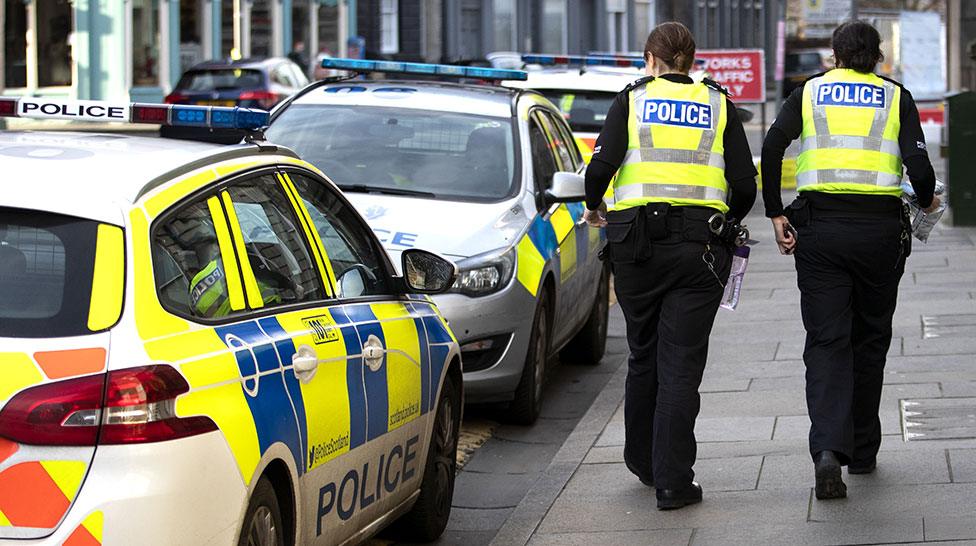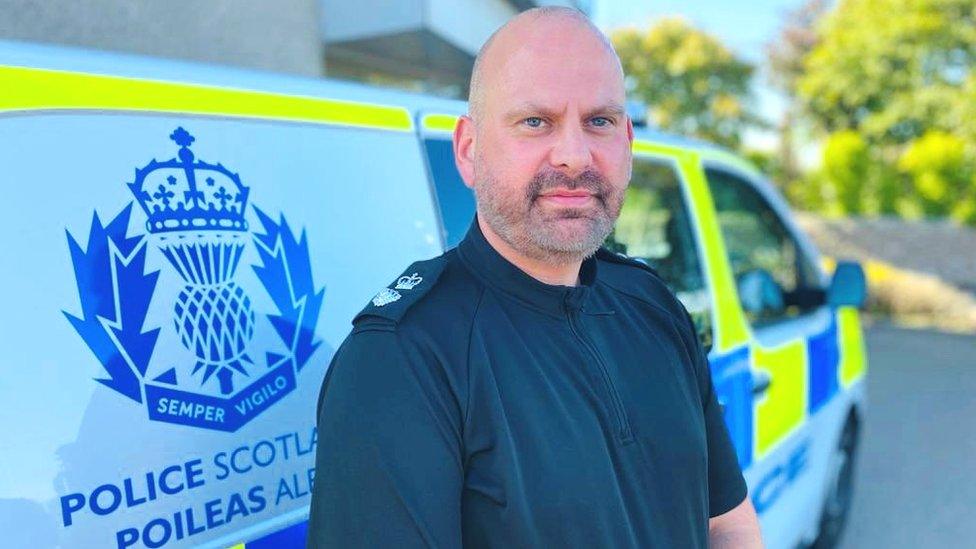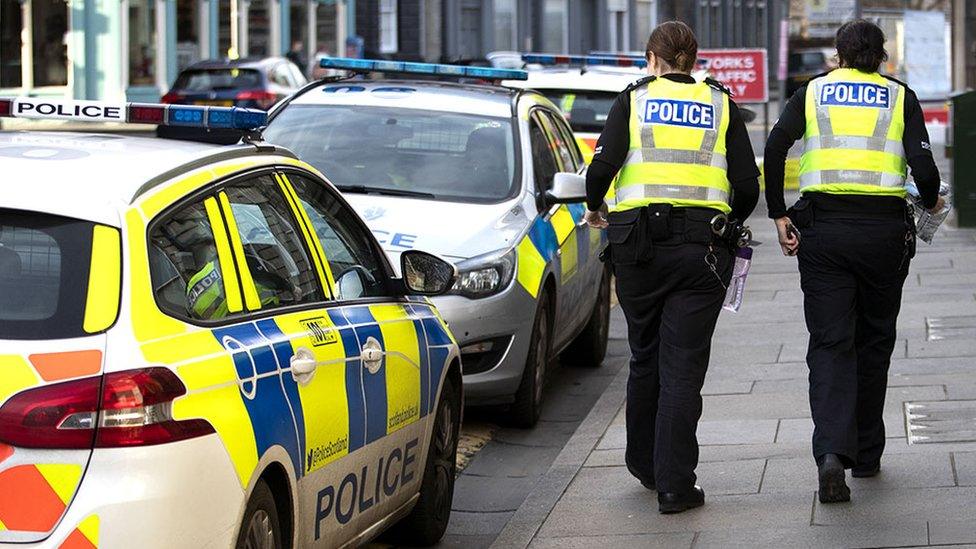Mental health calls impacting police effectiveness, report says
- Published

The report wants Police Scotland's role in responding to mental health services to be better defined
Responding to mental health-related incidents is limiting Police Scotland's ability to prevent, investigate and detect crime, a report says.
The study by the police watchdog said mental health demands had increased significantly in recent years.
It warned too much of frontline officers' time was being taken up as a result.
The report said mental health should be managed primarily by health and social care services.
It wants the Scottish government to commission a strategic review of the whole system relating to mental health, involving a range of scrutiny bodies.
The report, which was carried out by HM Inspectorate of Constabulary in Scotland (HMICS), said the role of Police Scotland in dealing with mental health needed to be clearly defined and articulated to officers, police staff and the public.
It found there was a perception among some police officers and staff that they were filling in gaps and performing the role of the NHS.
Craig Naylor, HM Chief Inspector of Constabulary in Scotland, said: "Police Scotland will always have a key role in supporting those experiencing poor mental health.
"This should, however, be within a wider structure which includes other emergency services, health and social care where, upon review, the care is provided by the agency most skilled and qualified to address the circumstances presented."
During the review, HMICS sought input from a mental health charity which said despite the best efforts of police officers, their involvement can sometimes have a detrimental impact on the well-being of those experiencing a mental health crisis.

'Officers are not trained to deal with mental health - it's not their fault'
Karen McKeown's partner Luke Henderson died in 2017.
Karen McKeown's partner Luke Henderson died in 2017 after previously struggling with his mental health.
The mother-of-two, from Bellshill in North Lanarkshire, said in Luke's case the police were the worst service to deal with his "mental health crisis".
"I think the police do a good job in some aspects but when it comes to them dealing with mental health they're just not trained and it's not the officers' fault," she said.
She was told regularly when seeking help for Luke that the police had to be called if she thought he was a danger to her or himself.
"In Luke's situation, if the police had to be called it would have fed into his delusions even more because one is where the police are against him - they are after him," she said.
"So if the police had to be called to come out it would have escalated it even though they are there to de-escalate the situation.
"It's just not fair on the person, it's not fair on the officers that are having to deal with it - there just needs to be more support around the full mental health situation and it can't be left to the police."

The report found calls associated with mental health were a daily occurrence for officers on the front line and it adversely impacted on their job satisfaction.
"Police involvement in mental health-related incidents should not be to the detriment of those in crisis, its officers, staff or the wider needs of Scottish localities and communities," Mr Naylor said.
"Officers should not routinely be performing welfare checks or sitting in hospital waiting rooms for lengthy periods of time.
"When doing that, they cannot be in their communities dealing with issues of local concern," he added.
The report mentioned the "right care, right person" scheme which is being implemented by police services across England and Wales which involves officers only attending mental health calls where there is a risk to life or of serious harm.
It aims to free up officers so they can go about other policing duties - but HMICS found police officers in Scotland were divided over whether they should respond in that way.
'Whole system review'
The report found that agencies who respond to those experiencing poor mental health generally support the concept of effective interdisciplinary partnership working and a wide-reaching review of mental health in Scotland.
"In the absence of such a review, or until one is undertaken, organisations such as Police Scotland must ensure they provide the best possible support to the public," Mr Naylor said.
"I do not consider it sustainable for the police service to continue without an agreed and published mental health strategy.
"Nor do I consider it reasonable for them to wait for the conclusions of a review of the whole system which depends on political and institutional will."
Jo Anderson, Director of Influence and Change at the Scottish Association for Mental Health said the call for a review echoes calls they have previously made to the Scottish Government.
"Any change in approach in the interim should have the experiences and needs of people with mental health problems at its heart," she said.
Police Scotland said work is already underway to develop a mental wellbeing strategy.
Related topics
- Published5 September 2023

- Published30 June 2022
